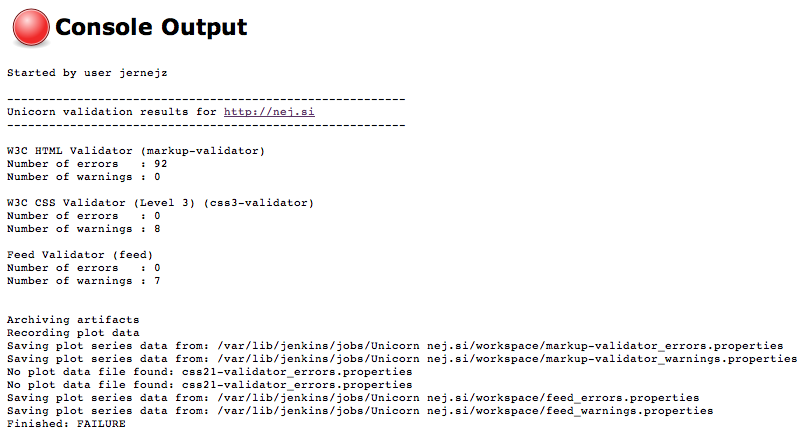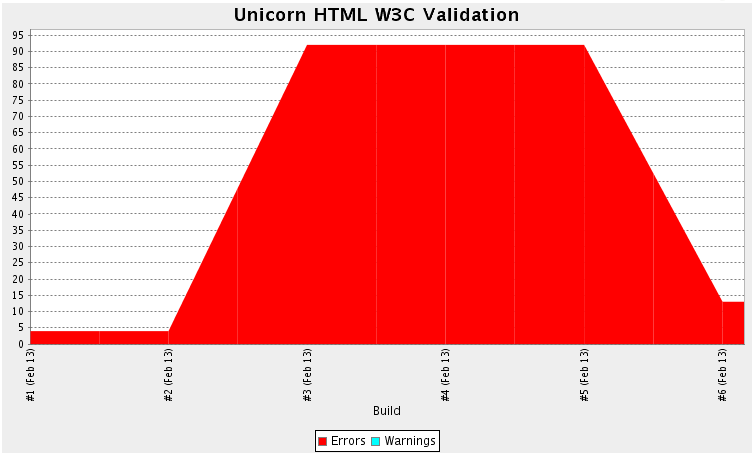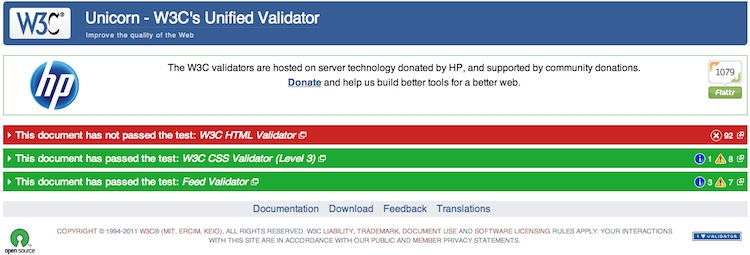This plugin uses W3C's Unified Validator, which helps improve the quality of Web pages by performing a variety of checks.
General
The plugin uses gets number of errors/warnings from W3C's Unified Validator. W3C Unicorn Service (http://validator.w3.org/unicorn/) helps to improve the quality of Web pages by performing a variety of checks (HTML validation, CSS validation,...). This plugins takes few arguments (url to check, w3c validator url and threshold for number of errors and warnings to decide the build result) ... look at the Configuration section.
It outputs results to the console and to some properties files which can then be later used with Plot Plugin to output some build history graphs (see the template below for configuration).
Example of results

Example of the W3C Unicorn html output
Example of a Plot

Configuration
Global Configuration
None.
Project Configuration
For a project to use the Unicorn Validation plugin, you need to add it as a build step to your job:

Here you can specify:
Unicorn service URL - the w3c's url is the default one, but you can specify your own if you have custom unicorn service
Site to validate - the url of the site to validate
Max number of errors/warnings for build to be stable/unstable - this is your threshold to decide if the build should be stable/unstable/failed ... currently these number are the same for every aspect of unicorn result (html, css, rss).
Plot Configuration
You can also get a pretty graph which shows you number of warnings/errors of previous builds. There a unicorn template for that to help you configure it.
Plugins required:
Steps to create a new job:
- Check out the unicorn-template project from Git: git@github.com:nej/unicorn-template.git
- Reload Jenkins' configuration
- Click on "New Job".
- Enter a "Job name".
- Select "Copy existing job" and enter "unicorn-template" into the "Copy from" field.
- Click "OK".
- Disable the "Disable Build" option.
- Setup your build trigger
- Fill in your "Site to validate" url
- Click "Save".
TODO
- currently these number are the same for every aspect of unicorn result (html, css, rss) ... ability so specify numbers for each result specifically
- currently all the test are executed that the unicorn validator offers ... ability to choose which ones to execute
Version History
0.1.0 (Feb 13, 2011)
- Initial public release
